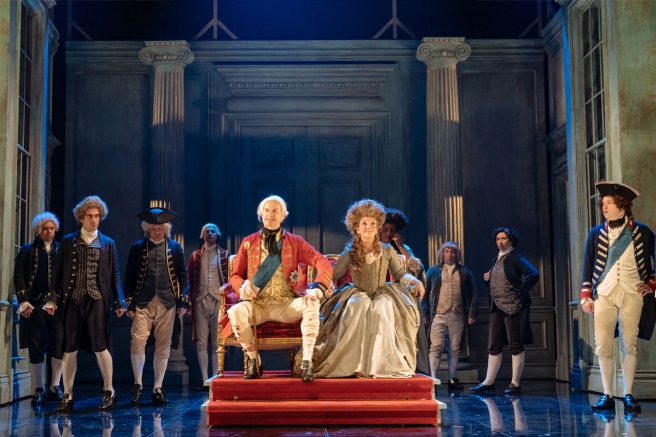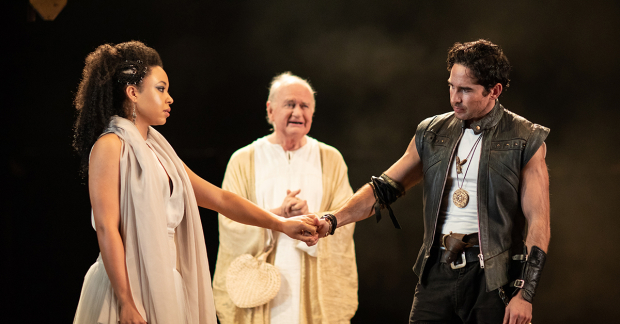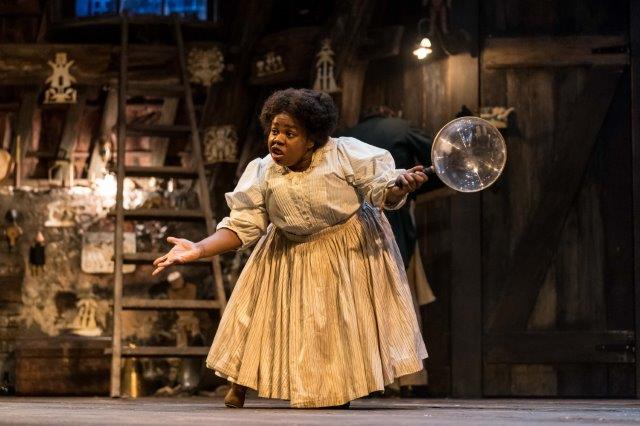
The Madness of George III, Nottingham Playhouse via NT Live
You’d have to say a big ‘well done’ to whoever at Nottingham Playhouse persuaded Mark Gatiss to make the trek out of London for this production. Before you get up in arms about any implied slight to regional theatre in that statement, I should point out that I work in regional theatre.
You would also have to say a big thanks to NT Live, for broadcasting this. It has been suggested – although this was swiftly denied by Nottingham Playhouse – that the prospect of a live broadcast may have swayed Gatiss’ decision to join the production. Whatever the details in this case, broadcasting productions from regional theatres has got to help balance out this London-centric industry.
Of course, it also gives those of us who don’t live in Nottingham a chance to see an excellent production with a great lead performance. Gatiss’ George is not the most likeable figure to begin with, being too majestic, and too cruel to his sons (deeply annoying and disappointing though those sons undoubtedly are), but this makes his descent into madness all the more distressing and moving to watch. He makes the final scene of act one, when George is strapped into a chair for the first time, in a parody of a coronation, genuinely difficult to watch.
Perhaps due to the presence of Gatiss’ the supporting cast is also very strong. Stand outs for me were Debra Gillett as the Queen, Nadia Albina as the slippery Captain Fitzroy, Jack Holden as Greville the loyal equerry and Harry Kershaw’s turn as a beautifully stupid Duke of York.
Bennett’s script is, of course, wonderful. Although centred around one man’s illness, Bennett also has some sharp things to say about the differences between government and opposition – the latter is described as all “nag, nag nag” – and the cruel nature of hereditary monarchy: The Prince of Wales says, “To be heir to the throne is not a position but a predicament.”
Add this cast and this script to a clever, highly adaptable set, and Nottingham Playhouse are on to a winner. Let’s hope that other regional theatres can follow their ambitious lead.
https://www.nottinghamplayhouse.co.uk/

